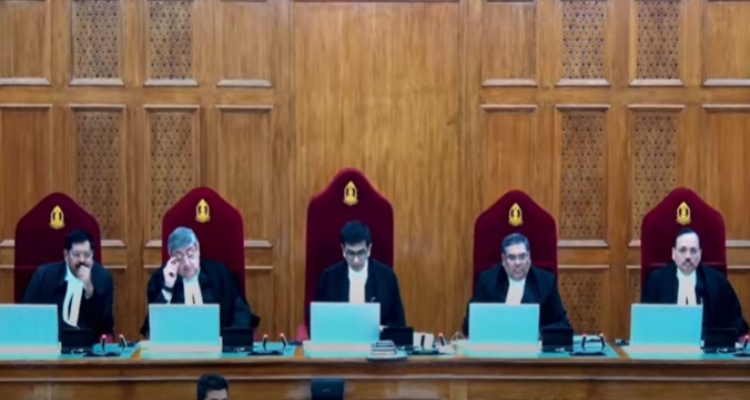
The Supreme Court delivered a landmark verdict on December 11 concerning the validity of Article 370, with Chief Justice DY Chandrachud asserting that the Central Government’s action to revoke Article 370 in Jammu and Kashmir fell within the constitutional framework. He emphasized the inappropriateness of questioning the government’s decision, affirming that Jammu and Kashmir remains an integral part of India, thus validating the removal of Article 370. Additionally, the Chief Justice highlighted the President’s authority in making decisions regarding Article 370.
CJI Chandrachud specified that challenges to the Central Government’s decision could only arise if it posed any form of hardship. He clarified that post the implementation of Article 356, it would not be suitable to argue that the Center lacks the authority to legislate solely through Parliament.
The judgment, rendered by three judges, includes perspectives from Chief Justice, Justice Gavai, Justice Surya Kant, Justice Kaul, and Justice Khanna, who concurred with the decisions.
PM Narendra Modi’s Reaction on SC Verdict
Today's Supreme Court verdict on the abrogation of Article 370 is historic and constitutionally upholds the decision taken by the Parliament of India on 5th August 2019; it is a resounding declaration of hope, progress and unity for our sisters and brothers in Jammu, Kashmir and…
— Narendra Modi (@narendramodi) December 11, 2023
The NDA government abolished Article 370 from Jammu and Kashmir during its second term on August 5, 2019, concurrently transforming the state into two union territories: Jammu and Kashmir, and Ladakh.
A total of 23 petitions challenging the removal of Article 370 were presented in the Supreme Court. A bench of five judges heard these petitions collectively over a span of 16 consecutive days, concluding on September 5. After 96 days, the Supreme Court finally delivered its verdict on December 11.
See here below the Essence of Land Mark Verdict on Article 370




